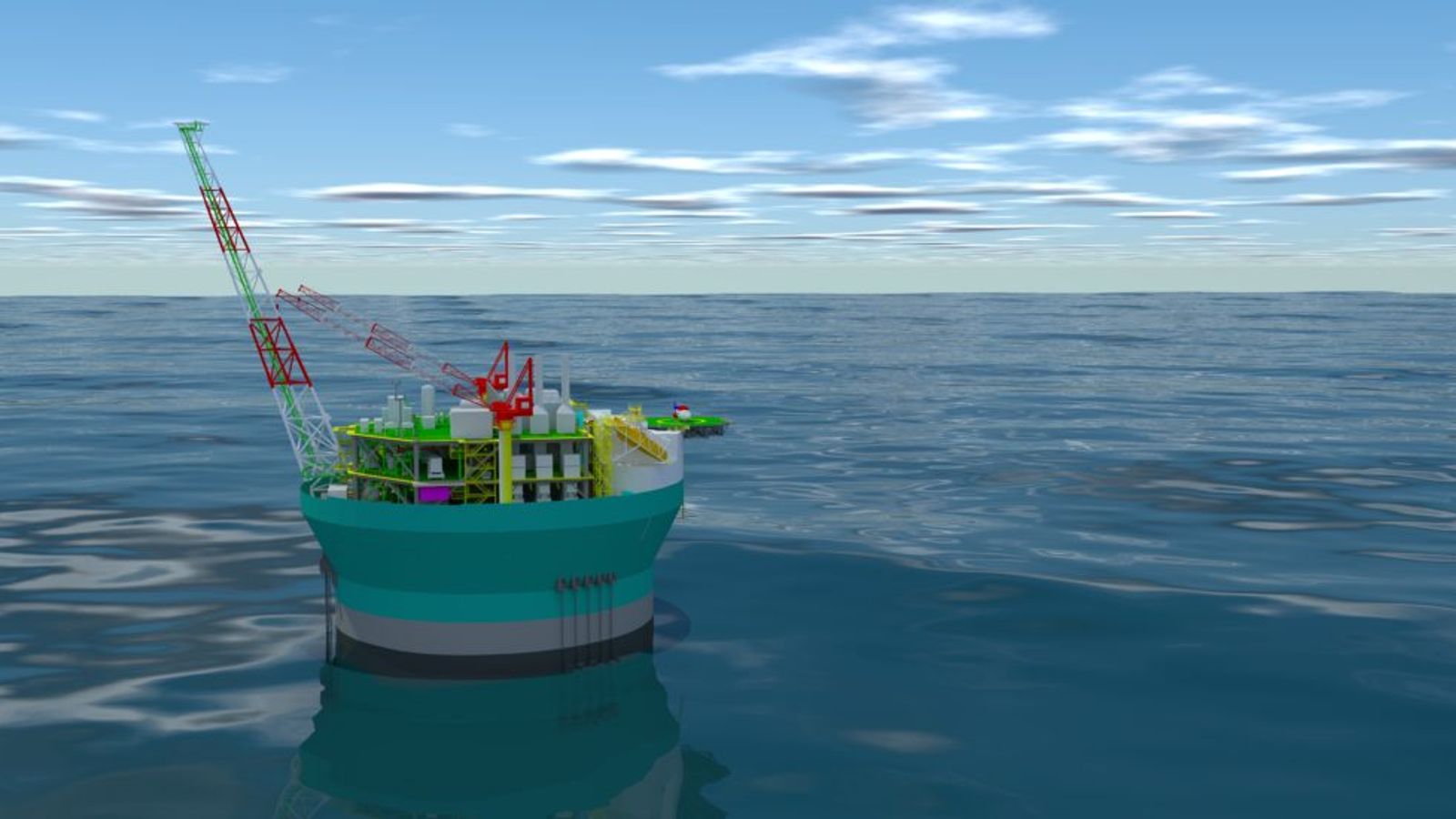Labour leader Sir Keir Starmer has judged that Boris Johnson’s flank is exposed on climate change leadership.
As the two men travel to Scotland to jockey for friends and influence, Sir Keir is accusing the prime minister of being “missing in action” and delivering “a cabaret of soundbites” rather than the global leadership necessary to make climate change summit COP26 a success.
Sir Keir knows that his words will have extra resonance because of his location.
COP26 is going to be held in Glasgow, and just a few hundred miles away in the North Sea, a particularly thorny problem is developing, one that illustrates the near-impossible balancing act the government must pull off in order to protect its credibility as it urges other countries to increase emission reduction commitments.
The thorn is called Cambo. It is an oil field containing an estimated 800 million barrels of oil, and it is co-owned by Shell and the private equity backed Siccar Point Energy.
The license to develop the field was awarded in 2001, but UK government regulator The Oil and Gas Authority is due to give it final approval to go into production.
Just months before COP26, the optics of this moment are terrible.
Outraged campaigners and climate scientists are piling on the pressure.
Friends of the Earth Scotland has said that the first phase of development alone would extract oil that when burnt would be the equivalent of running 18 new coal fired power stations for a year.
The Scottish Green party has called the approval of the field, which would operate until approximately 2050, a “catastrophic” proposal incompatible with current climate targets.
The prime minister has just received an open letter signed by organisations like Oxfam and the Royal Society for the Protection of Birds (RSPB), which urges him to stop Cambo. And on Thursday, a petition signed by 80,000 people will be delivered to Downing Street demanding the same, and Greenpeace is threatening legal action if approval goes ahead.
Even America’s special climate envoy John Kerry came perilously close to intervening in UK domestic affairs in a recent speech when he said that the government must “measure the need [for a new oil field] very, very carefully”.
Tessa Khan, a climate change lawyer and the founder of campaign group Uplift, said: “Pursuing new developments undermines the UK’s chances of delivering successful outcomes at COP26.
“Greenlighting this development would only encourage other countries to continue to invest in fossil fuel development. In the run-up to COP26, countries will be paying more attention to what the UK does than to what it says.
“The UK must lead – and be seen to be leading – from the front to ensure its successful delivery.”
The government has recently decided to introduce a new climate change compatibility test or ‘checkpoint’ to any new oil and gas developments, but these will not be applied to fields like Cambo that have already been licensed.
Ministers and advisers insist that the approval of Cambo is entirely in the hands of the oil and gas regulator and that there are no plans to find a way to stop it.
Any attempts to do so, they point out, would likely result in the government being taken to court by Shell and Siccar Point.
A government source told Sky News: “Cambo is not a new oil field, it was licensed in 2001.
“We cannot intervene.
“The ongoing approval process is not within our control.”
Subscribe to ClimateCast on Spotify, Apple Podcasts, or Spreaker.
There are many more Cambos out there in the North Sea.
The Oil and Gas Authority continues to quietly grant licences to extract oil and gas.
Last year alone for example, it handed out 113 of them.
The Climate Change Committee has acknowledged that there will be an ongoing need for domestic oil production as the UK transitions to renewables.
But it has also warned that the government must be more ambitious as it grapples with how to shift an entire industry away from what it has done for decades.
Whatever the challenges, the government’s ‘sorry, but it’s nothing to do with us’ approach may start to feel increasingly precarious and hard to defend as COP26 draws near.
Please use Chrome browser for a more accessible video player
Sky News has launched the first daily prime time news show dedicated to climate change.
The Daily Climate Show is broadcast at 6.30pm and 9.30pm Monday to Friday on Sky News, the Sky News website and app, on YouTube and Twitter.
Hosted by Anna Jones, it follows Sky News correspondents as they investigate how global warming is changing our landscape and how we all live our lives.
The show also highlights solutions to the crisis and how small changes can make a big difference.






















